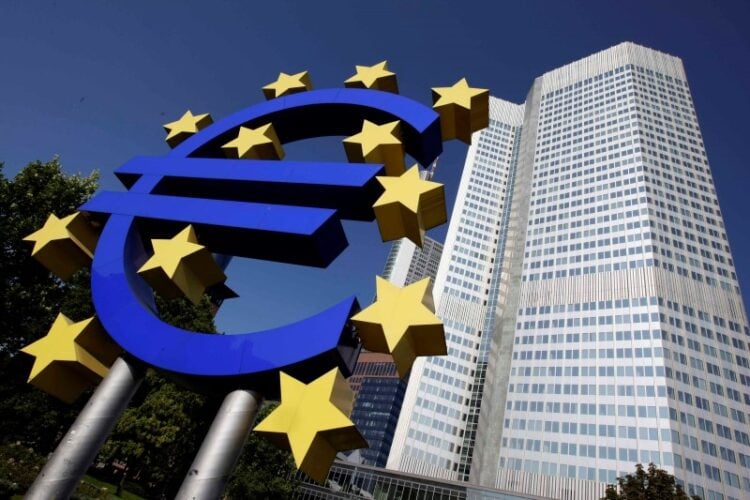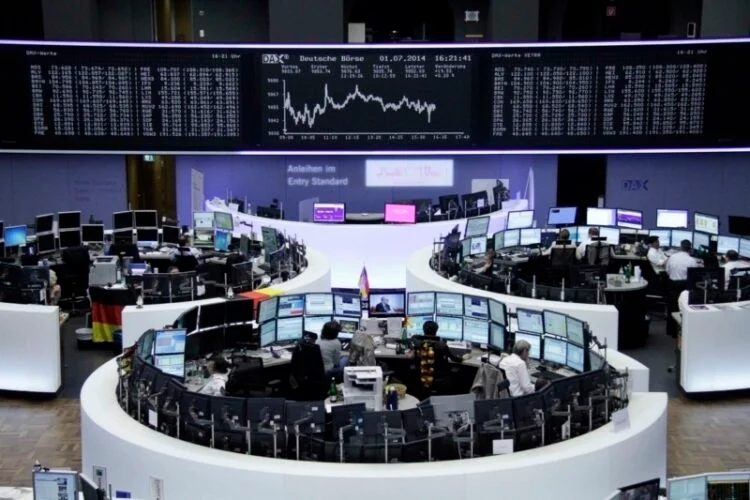Publisher: Maaal International Media Company
License: 465734
FT: Political uncertainty and trade tensions cause growth slowdown in Europe
The British newspaper “Financial Times” reported warnings, issued by economic specialists and analysts, that trade tensions and political uncertainty are likely the reason for the slowdown in growth in the euro zone during the second quarter of this year, the data of which will appear next week.
This comes after data from the Purchasing Managers’ Index, which measures activity in the manufacturing and services sectors and is closely followed, showed that the euro zone economy slowed sharply due to weaker-than-expected growth in services and a sharp decline in manufacturing, especially in Germany.
The Eurozone Purchasing Managers’ Survey indicated that business activities are slowing and on track to stop this month, as its composite index fell to a five-month low of 50.1, leaving it just above the 50 mark that separates growth from contraction.
اقرأ المزيد
The British newspaper reported that these results, which were published by Standard & Poor’s Global yesterday, were weaker than the expectations of economists polled by Reuters, as they expected a slight increase from 50.9 last month to 51.1.
The newspaper quoted Vincent Stamer, an economist at the German Commerz Bank, as saying that the weak numbers put a question mark over the remarkable economic recovery that many forecasters expect in the second half of the year, adding that concerns apply in particular to Germany, the largest economy in the euro zone. .
The newspaper reported that the detailed Purchasing Managers’ Index results showed continued disparity between the manufacturing sector and the larger services sector, as the services reading decreased from 52.8 to 51.9, while the manufacturing index decreased from 45.8 to 45.6.
The newspaper pointed out that the eurozone economy witnessed stagnation for most of last year, but returned to growth in the first quarter, expanding by 0.3%, with inflation slowing more than wages, enhancing the purchasing power of families.
The newspaper quoted “Standard & Poor’s Global” that the economy barely moved in July, as companies in the euro zone announced a decline in orders for the second month in a row, which prompted them to halt the recent increase in employment, and led to weak confidence in the coming year to the lowest level in the past year. six months.
It also quoted Cyrus de la Rubia, chief economist at Hamburg Commercial Bank, as worrying about the steady pace of companies in the manufacturing sector in cutting jobs on a monthly basis, but he said that the decline in employment at a rate less than output indicates that there may still be hope. In better times.
The newspaper pointed out that when the European Central Bank maintained interest rates last week, its President, Christine Lagarde, said: “The risks to economic growth tend toward the downside,” noting that services “lead the way,” but manufacturing “has declined in the past few months,” and investment as well.” “He is still weak.”
She added that “Standard & Poor’s” found that price pressures on euro zone companies rose at the fastest pace in three months, but managers said that these pressures were not fully transferred to customers, as selling prices rose overall at the slowest pace since October, reflecting increases in services. and declines in manufacturing.
The newspaper quoted economists as saying that weaker growth expectations make it more likely that the European Central Bank will cut interest rates at its next meeting in September. However, steady inflation in services caused by rapid wage growth is still likely to concern policymakers.
The newspaper attributed to Franziska Palmas of Capital Economics that the combination of the weak economy and high price pressures provides some support for both hawks and doves. Despite this, she expressed her belief that a cut in September was most likely.
The outlook became brighter in France, where some service companies announced a recovery in activity before the Olympic Games, and there was also relief that the parliamentary elections that took place this month did not give a majority to far-right or left-wing parties, according to the newspaper.
The newspaper pointed out that the survey results in Germany were noticeably weaker than expectations, as the German Purchasing Managers’ Index reading fell from 50.6 to its lowest level in four months at 48.7, indicating a contraction in business activity in the country, and German factory production also declined at the fastest rate. Nine months ago.
European Central Bank policymakers closely monitor such surveys as they search for clues about the direction of the eurozone economy. The bank decided last week to keep interest rates at their current high rate, but indicated that it may make a second cut this year if the economy is at risk of faltering.
The President of the European Central Bank said after the decision: What we will do in September is wide open, noting that inflation has declined steadily this year throughout the twenty euro zone countries.








